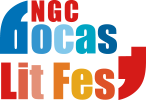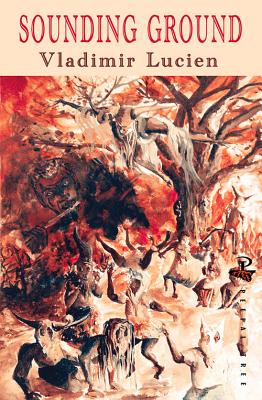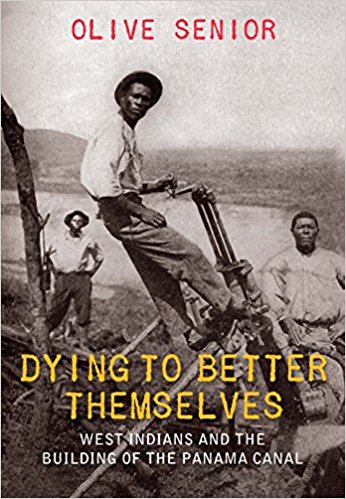The OCM Bocas Prize for Caribbean Literature
← Back to Main Awards PageThe OCM Bocas Prize for Caribbean Literature is a major award for literary books by Caribbean writers. Prizes are awarded in three categories: poetry, fiction, and literary non-fiction; with one book being named the “Overall Winner.” The prize includes an award of $10,000 for the overall winner ($3,000 for the other winners), and is sponsored by One Caribbean Media. The awards are announced during the Bocas Literary Festival which is held in Trinidad & Tobago each spring.
To be eligible for the prize, a book must have been published in the past calendar year, and written by an author born in the Caribbean or holding Caribbean citizenship. Books must also have been originally written in English. Learn more ▶.
3 Books Honored in 2015
Sounding Ground
Winner of:
2015 OCM Bocas Prize for Caribbean Literature
Vladimir Lucien is a young poet with so many gifts; his poetry is intelligent, musical, gritty in observation, graceful in method. His poems contain stories of ancestors, immediate family, the history embedded in his language choices as a St Lucian writer, and heroes such as Walter Rodney, C. L. R. James, Kamau Brathwaite, and a local steelbandsman. Although never overtly political, theres an oblique and often witty politics embedded in the poems, as where observing the rise of a grandfather out of rural poverty into the style of colonial respectability, he writes of the man who eat his farine and fish / and avocado in a civilize fight between / knife and fork and etiquette on his plate. This is a collection that is alive with its conscious tensions both in subject matter and form. Theres a tension between the vision of ancestors, family, and of the poet himself as being engaged in the business of acting in the world and building on the past, and a sharp awareness of the inescapability of ages frailty, the decay of memory and of death.
A Brief History Of Seven Killings: A Novel
by Marlon James
Winner of the 2015 Man Booker Prize
A recipient of the 2015 American Book Award
Named a best book of the year by:
The New York Times, Chicago Tribune, The Washington Post, The Boston Globe, Time, Newsweek, The Huffington Post, The Seattle Times, The Houston Chronicle, Publishers Weekly, Library Journal, Popsugar, BookPage, BuzzFeed Books, Salon, Kansas City Star, L Magazine.
rom the acclaimed author of The Book of Night Women comes a musical, electric, fantastically profane (The New York Times) epic that explores the tumultuous world of Jamaica over the past three decades.
In A Brief History of Seven Killings, Marlon James combines brilliant storytelling with his unrivaled skills of characterization and meticulous eye for detail to forge an enthralling novel of dazzling ambition and scope.
On December 3, 1976, just before the Jamaican general election and two days before Bob Marley was to play the Smile Jamaica Concert to ease political tensions in Kingston, seven gunmen stormed the singers house, machine guns blazing. The attack wounded Marley, his wife, and his manager, and injured several others. Little was officially released about the gunmen, but much has been whispered, gossiped and sung about in the streets of West Kingston. Rumors abound regarding the assassins fates, and there are suspicions that the attack was politically motivated.
A Brief History of Seven Killings delves deep into that dangerous and unstable time in Jamaicas history and beyond. James deftly chronicles the lives of a host of unforgettable characters gunmen, drug dealers, one-night stands, CIA agents, even ghosts over the course of thirty years as they roam the streets of 1970s Kingston, dominate the crack houses of 1980s New York, and ultimately reemerge into the radically altered Jamaica of the 1990s. Along the way, they learn that evil does indeed cast long shadows, that justice and retribution are inextricably linked, and that no one can truly escape his fate.
Gripping and inventive, shocking and irresistible, A Brief History of Seven Killings is a mesmerizing modern classic of power, mystery, and insight.
Dying to Better Themselves: West Indians and the Building of the Panama Canal
by Olive Senior
The popular West Indian migration narrative often starts with the Windrush Generation in 1950s England, but in Dying to Better Themselves Olive Senior examines an earlier narrative: that of the neglected post-emancipation generation of the 1850s who were lured to Panama by the promise of lucrative work and who initiated a pattern of circular migration that would transform the islands economically, socially and politically well into the twentieth century. West Indians provided the bulk of the workforce for the construction of the Panama Railroad and the Panama Canal, and between 1850 and 1914 untold numbers sacrificed their lives, limbs and mental faculties to the Panama projects. Many West Indians remained as settlers, their descendants now citizens of Panama; many returned home with enough of a nest egg to better themselves; and others launched themselves elsewhere in the Americas as work beckoned. Senior tells the compelling story of the West Indian rite of passage of Going to Panama and captures the complexities behind the iconic Colon Man.Drawing on official records, contemporary newspapers, journals and books, songs, sayings, and literature, and the words of the participants themselves, Senior answers the questions as to who went to Panama, how and why; she describes the work they did there, the conditions under which they lived, the impact on their homelands when they returned or on the host societies when they stayed. Many books have shown the conquest of the Isthmus of Panama by land and sea exploring how the myriad individual lives touched by the construction of the railroad and the canal changed the world as well.




